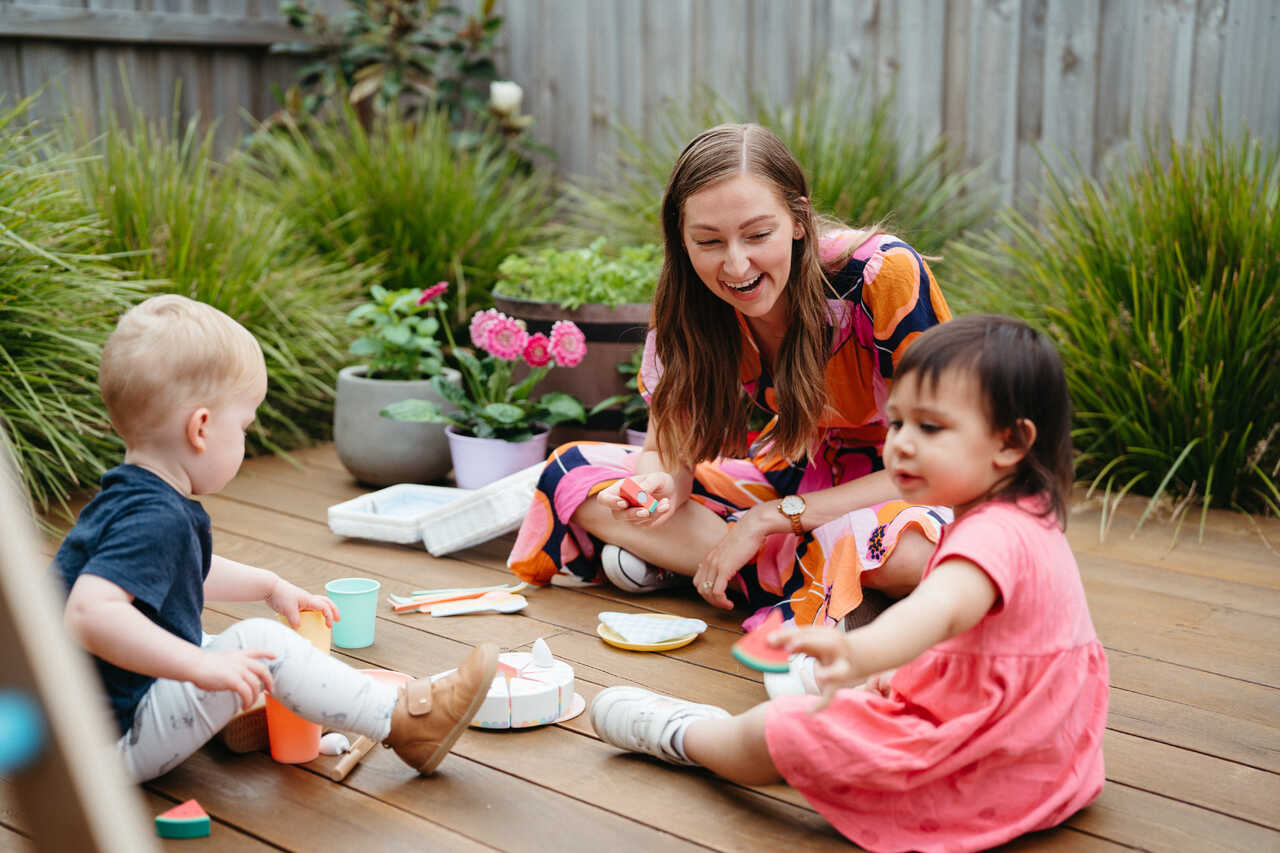EIBI and ABA: What are They?
Applied Behaviour Analysis (ABA) refers to the scientific study of behaviour, we apply this to make positive and meaningful changes in our learners’ lives. Utilising ABA means making changes in the environment and our behaviours as educators and parents so that our kids can benefit. Program decisions are driven by data and target behaviours are positively reinforced. Using ABA strategies in therapy for autistic children is an evidence based practice – It creates positive lifelong changes.
Skills we help children develop in ABA therapy include:
- Communication – When your children can communicate effectively, they don’t need to use other behaviours (crying, hitting, pulling etc) to convey their wants and needs. For example:
-
- Requesting: “I need toilet”, “Blow bubbles”, “Excuse me”.
- Making choices: “Can I have the blue crayon?”, “Run faster”, “Let’s climb”.
- Labelling: “I see a truck”, “There’s my friend Adrian”, “Woah that’s so fast!”.
- Conversational skills: “I went to the zoo on the weekend”, “Do you have any pets?”, “My favourite colour is green”, singing songs.
- Receptive language skills: Understanding and responding to directions and gestures such as coming to the mat with peers when the teacher calls, passing the crayon when a peer requests, and identifying body parts on self and others.
- Social – For example, communicating and responding to peers, turn taking, cooperative play.
- Self-care – For example, toileting, washing hands, brushing teeth and hair, dressing.
- Academic – Including breaking down skills into smaller steps where required. For example, sorting, matching, writing, drawing, reading.
- Behavioural – Where existing behaviours are harmful, we teach appropriate replacement behaviours, ensuring they serve the same function for the child. There’s always a reason the child is engaging in the behaviour, and we can help identify a more appropriate way for that need to be met. Autistic individuals have the right to stim (engage in self-stimulatory behaviours) and the children we serve are always at the forefront of all our goals and programs. Our goal is to serve the child with their best interests at heart (not make the lives of others more comfortable). At Cheeky Raspberries our focus is on teaching new skills. We do not use restrictive practices and advocate for best practices with all key adults in the child's life. Examples of behaviours we would develop interventions for include hitting, biting, scratching self or others, and running onto roads.
- Motor – For example, spatial awareness, fine motor skills such as pencil grip, and gross motor skills including running and playing sports.
- Safety skills – For example, recognising when someone is being “cool” or “not cool”, road safety, using public bathrooms safer, being assertive, when to leave a situation, and when to tell a trusted adult about a situation.
At Cheeky Raspberries we use ABA to teach young children new skills, become more independent and assertive, and overcome challenges they face.
If you’d like further information on ABA you can read more on the:
- Association for Behaviour Analysis Australia (videos also available)
- Autism Speaks
- Autism: What Next?
- Raising Children Network
Cheeky Raspberries specialises in Early Intensive Behavioural Intervention (EIBI)
- Early refers to children who are under the age of 7. Whilst ABA therapy is effective for people of all ages, young children tend to make the biggest lifelong positive changes.
-
- Please note: Regarding funding, the NDIS now consider children under 9 years old to fall in the early childhood category.
- Intensive refers to the number of therapy hours provided each week. Whilst intensive often refers to 20+ hours per week, the recommended number of hours (and their location) is highly dependent on the child and their goals, and many of our learners do not require these hours. Our family-centred approach to therapy is integrated into your child’s natural environment. Children may complete sessions at home and/or daycare, kinder, or primary school. Support to participate in extracurricular activities such as swimming, athletics drama class etc may also be provided. We also highly encourage parent, educator, and other allied health professional involvement. We aim to keep your child in their classes and social activities, often supporting them in these natural contexts, as social skills are best worked on with their peers. For example, teaching your child cooperative play, such as building blocks together, is best worked on when a peer is present! (Don’t worry if your child has no/minimal play skills yet, this is why we exist!). For some children, intensive hours are not required, and they have fewer session hours or purely parent and educator training. Our services are individualised and reflect the requirements of the child.
-
- Please note: At Cheeky Raspberries we are very understanding of funding constraints. We write reports for NDIS planners, including personalised quotes for recommended services, to gain the appropriate level of funding. If your child’s plan does not yet cover best practice hours for them, we are often still happy to work with your child and other important stakeholders in their life, to provide the best services possible.
- Behavioural Intervention refers to the ABA strategies that are used. To read more about ABA please see the section above.
You can read more about EIBI on the Raising Children Network.


